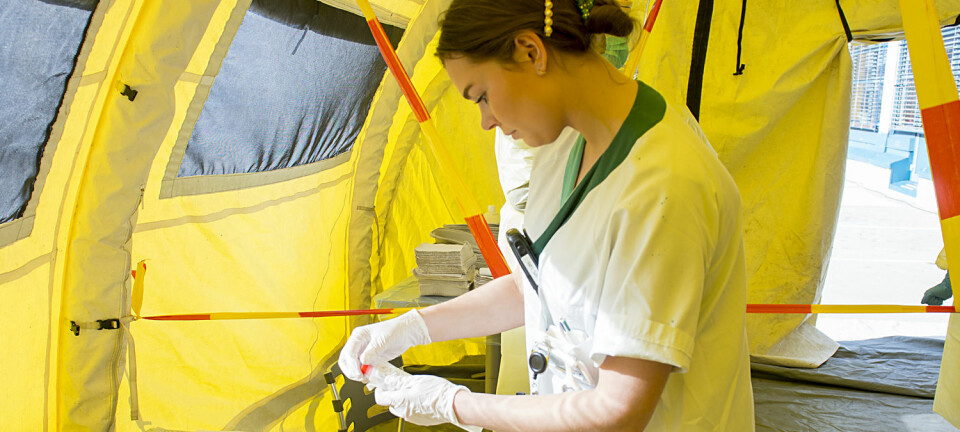
Fewer and fewer men want to become doctors
More than twice as many women as men want to become doctors in Norway. The development is worrying, says the leader of the Younger doctors' union.
Women have become more and more dominant at the various medical study programmes in Norway. New numbers for this year shows that the trend continues.
In total just over 5400 people have applied to study medicine this coming fall. Only 30 per cent of them – 1642 in absolute numbers – are men.
Not well enough paid?
Kristin Kornelia Utne is the leader of the Younger doctors’ union. She tells ScienceNorway.no in an email that she’s worried about the development.
“Our union is of course very happy that there are many good applicants, independent of gender. At the same time, we would like to see a more even distribution of gender in the medical field. Thus, we find if worrisome that not more skilled men wish to study medicine”, she writes.
According to Utne, the Younger doctors’ union sees that part of the reason for why men would rather apply for studies in other fields is that doctor’s autonomy today is under increased pressure from management by objectives. Another reason is that salaries may not be competitive enough. Thus, many men rather apply for studies within technology and economy.
“This is not a welcome development”, Utne writes.
Does it matter?
Does it matter then, if your medical doctor is a woman or a man?
“Many studies have looked into this, and the findings are partly conflicting”, says Arnstein Finset. He is a professor of medical psychology at the University of Oslo, and has done research on the communication between doctors and patients since the 1990s.
If in fact there Sare differences, they are not many and they are not that significant, he has previously said to Norsk Helseinformatikk (link in Norwegian).
Still, Finset believes that female doctors are more concerned with the emotional aspects of illness and disease.
“Patients often express their emotions through more or less clear hints. One study showed that men and women give the same amount of hints, but the hints from the women were more apparent and intense compared to the hints given by men. Female doctors consistently reacted more empathetically to these hints than male doctors”, he said.
Not permitted to use quotas
Using quotas or giving extra points to the underrepresented gender in order to even out gender differences in students is permitted in some health profession studies in Norway. It is however not permitted in the study of medicine.
The Faculties of Medicine in Oslo and Bergen applied to the Ministry of Education and Research to be allowed to introduce gender quotas in 2018. The answer was no.
The Norwegian Medical Association also wishes for it to be possible to use quotas in order to increase the amount of men going to medical school and thus achieve a better gender balance. The association voted yes to gender quotas in 2018.
Not scared by the pandemic
A year of the corona pandemic has not scared young people away from applying for studies within the health professions.
More than every fourth applicant has a health profession as their main choice of study this year – slightly more than last year. This is according to recently presented numbers from The Norwegian Universities and Colleges Admission Service.
There are many more applicants than available admissions both within medicine and nursing.
Last year, shortly after the onset of the pandemic, there was a lot of focus on the work pressure a lot of health care personnel were experiencing. Still, a record number of applicants wished to become nurses and doctors.
A corona effect?
There was talk then, of a corona effect.
“Nurses and other health workers have been in focus during the crisis, which we think may be one reason why more people want to study these professions. At the same time, many people are now unemployed and see that nursing and other health professions offer fairly secure jobs in the future,” Pia Cecilie Bing-Jonsson said to ScienceNorway.no last year.
Bing-Jonsson is Vice-Dean at the Faculty of Health and Social Sciences at the University of South-Eastern Norway.
Translated by: Ida Irene Bergstrøm
———

































